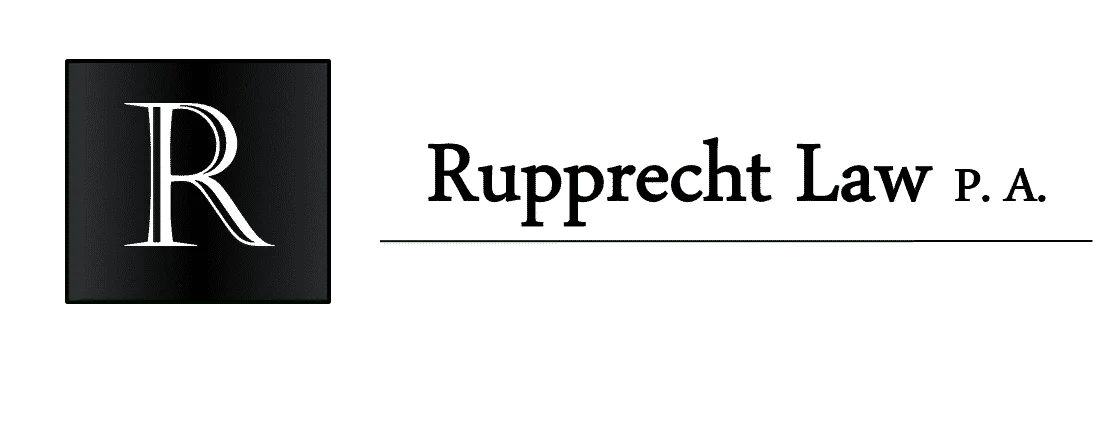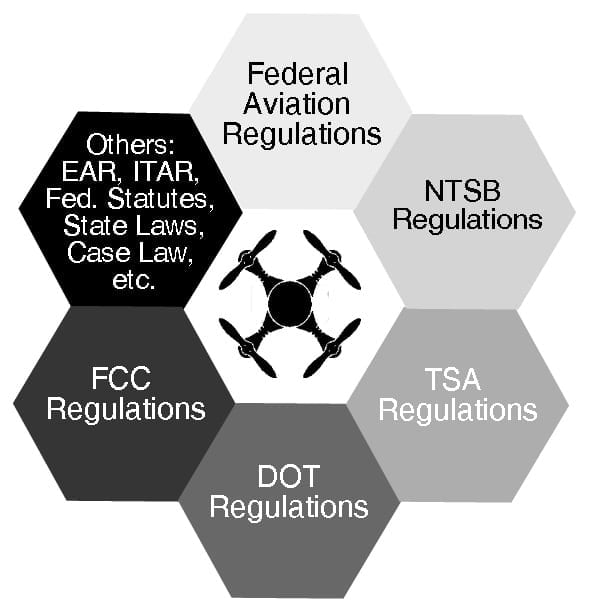|
Getting your Trinity Audio player ready...
|
Interested in drone laws? It can be a pain to try and figure out what is applicable. That is why I created this page! I’m a drone lawyer. I wrote this page to specifically help drone flyers. :)
Table of Contents of Article
Where NOT to Look for Help With Drone Laws
Here is a tip, stay away from Facebook or anyone else who is a newbie to aviation. They tend to waste your time and provide bad guidance. Seriously, you should be very careful where you get information from – not everyone is qualified to give you information. You don’t install random pieces of software you find on the internet onto your computer. Why would you do that for the laws and legal advice?
For example, I was reading a drone book, by someone very popular on the internet and Youtube, which was just completely – flat out – totally- 100% wrong. The section on drone laws was just horrible. I think this person just hired a copywriter to write the book which resulted in utter garbage. If you were to rely on that bad advice, you could get in trouble and be on the receiving end of a lawsuit or criminal prosecution. Worse yet, on their YouTube channel, they continued to give out legal advice that was incomplete. Either they were keeping their readers in the dark about one critically important piece of advice or they were sincerely, and incorrectly, giving out advice which could result in legal consequences.
You should vet everyone before you give them your time. Here, vet me by looking at my bio.
Where to Look for Help With Drone Laws
You should look at resources in this order:
- The actual drone regulations (Part 107, 49 USC 44809, Part 47, Part 48, Part 89, etc.) (Please keep in mind that the laws are constantly changing so even some of the regulations might be outdated.)
- The FAA’s website.
- My website! You can even use the search feature.
- Other competent drone lawyers or consultants (read the two articles below on how to find out as there are some really bad people out there).
- Your local Flight Standards District Office Aviation Safety Inspector, any FAA email on their website, etc.
United States Drone Laws
There are different levels of governmental authority in the U.S. We have a federated system where we are governed on certain things by the U.S. Federal Government and the state governments with those areas not enumerated to the U.S. government.
Additionally, the states have passed laws allowing counties, cities, and towns to regulate individuals. At any given moment, a person can 3 or 4 levels of laws applying to them. For example, your drone operations could have federal aviation laws, state drone laws, county drone laws, city or town laws, and maybe even HOA rules all applying to them.
Whether or not the states, counties, and cities can regulate drones is another big issue way outside of the scope of this article. As time goes on, things will shake out as to the scope of the drones laws the states, counties, cities, and towns can create. This will be determined by federal legislation or by federal case law determining what state drone laws are preempted and which drone laws are not.
Federal Drone Public Law
Public Law is law that has been passed by Congress and signed by the President. Sometimes people use the term “legislation” to describe the public law. Obamacare, HIPPA, etc. are all Public Laws. I created a directory of federal drone legislation that has been approved or proposed. Most of the proposed drone legislation out there ends up never becoming law.
There has been two sets of laws specifically talking about drones:
- FAA Modernization and Reform Act of 2012 (Public Law 112–95)
- FAA Extension, Safety, and Security Act of 2016 (Public Law 114-190)
- FAA Reauthorization Act of 2018 (Public Law 115-254)
There are other public laws that have been passed and which were codified in the United States Code. The Department of Justice enforces the Federal Criminal Code in Title 18 and the Federal Aviation Statutes in Title 49 of the United States Code.
There are some federal laws in Title 18 that could apply to drone operations such as § 32 which would prohibit the destruction of drone aircraft and § 796 which prohibits the use of aircraft for photographing defense installations.
The Department of Justice attorneys have been involved at least twice with drone operators: (1) in the Skypan case which was originally started in the federal district court in Chicago and (2) in the federal district court in Connecticut with the Haughwout case (the kid who attached a gun and later a flamethrower to a drone).
Federal Drone Regulations
Regulations are created through the rulemaking process. There are many regulations that apply to drones and I have a federal drone regulations directory page to help people. Below is covering the agencies that enforce the laws but does not go in-depth on the regulations which is what the drone regulations directory page is designed to do.
Federal Aviation Regulations (Enforced by the Federal Aviation Administration)
We immediately think of the Federal Aviation Administration (“FAA”) when it comes to drone laws. The FAA enforces the Federal Aviation Regulations (“FARs”) which apply to all sorts of things such as student training, airports, maintenance, flying, aircraft certification, rocket launches, etc.
The two parts of the FARs that apply to drone operators are Part 107 (for non-recreational operations) and 49 USC 44809 (for model aircraft exception operations). But that is NOT all!
All drones are required to be registered under Part 47 or Part 48.
I have created many articles on federal aviation regulations. I have listed below the most popular ones.
- Free Part 107 Test Study Guide For FAA Remote Pilot Airmen Certificate
- FAA’s New Part 107 Drone Regulations- What Drone Operators Need to Know
- How to Get Your FAA Drone Pilot License (For First-Time and Current Pilots)
- Part 107 Waiver (COA) – What Drone Pilots Need to Know
- Section 333 Exemption vs. Part 107 vs. Public COA vs. Blanket Public COA
Other Federal Agencies and Their “Drone Laws”
The FAA is not the only agency that regulates drones. There are also others! Keep in mind this list is not exhaustive.
NTSB. If you crash your drone, you are required to report to the National Transportation Safety Board! Additionally, you might need to file an aviation safety reporting system form which is administered by NASA! See my article on What are you required to do after a drone crash?
TSA. The Transportation Safety Administration administers the Alien Flight Student program (governed by the Alien Flight Student regulations). All FAA-certificated flight instructors know this and have to be careful regarding providing training as well as doing security awareness training. As I read it, I think the TSA could assert jurisdiction over flight instructors training alien flight students.
DOT. The Department of Transportation has regulations regarding the transportation of hazardous material (i.e. drone medical delivery).
FCC. The Federal Communications Commission regulates radio transmitters, the frequencies they transmit on, and the power of the transmitter. Many people don’t even pay attention to that sticker that is on the back of your controller. Take a chance to read it over some time. The FCC put out an enforcement advisory on “DRONE AUDIO/VIDEO TRANSMITTER ACCESSORIES MUST COMPLY WITH THE COMMISSION’S RULES TO BE MARKETED TO U.S. CUSTOMERS” The FCC has gone after companies who have sold drone-related equipment that were transmitting on frequencies they should not, were over the legal power limit, or were not certified.
- FCC went after Hobbyking with a 2.8 million fine for selling all sorts of illegal products. ARRL appears to have informed the FCC on these issues.
- Lumenier Holdco LLC f/k/a FPV Manuals LLC settled with the FCC with a $180, 000 fine along with some actions they will take because they sold non-compliant equipment.
- FCC went after Horizon Hobby. They ended up settling for $35,000.
- CBP seized a bunch of small helicopters that were being imported that were not compliant with FCC labeling.
DOC. You also have the Department of Commerce with the Export Administration Regulations (“EAR”) and the State Department with the International Trafficking in Arms Regulations (“ITAR”). Bard College’s Center for the Study of the Drone published an article detailing multiple prosecutions under ITAR.
NOAA. The National Oceanic and Atmospheric Administration (NOAA) sometimes gets involved because they have jurisdiction over national sanctuaries. NOAA created frequently asked questions
regarding NOAA’s regulated overflight zones of West Coast National Marine Sanctuaries.
“Are model aircraft and Unmanned Aircraft System (drone) operations subject to NOAA regulated overflight zones?
A. Yes. Model aircraft and Unmanned Aircraft Systems (drones) propelled by motors qualify as motorized aircraft under regulations of the sanctuaries, and therefore must adhere to sanctuary regulated overflight zones. As with traditional aircraft, UAS could operate above the sanctuaries’ minimum altitude limits, provided Federal Aviation Administration (FAA) regulations allow them to fly at such altitudes. Current FAA rules impose altitude limitations on model aircraft and other Unmanned Aircraft Systems.“
NPS. National Park Service has put out statements in the past prohibiting the operation of drones in national parks. Things have changed. It is hit or miss where you can fly at the different parks. Some locations have designated areas where you can fly but you have to check. Type in the name of the national park plus “compendium” in Google and you should find some helpful results. Additionally, you should call ahead to see if anything has changed.
DOI. The Department of the Interior has regulations and you could get in trouble with some of them. 43 CFR § 9212.1 “Unless permitted in writing by the authorized officer, it is prohibited on the public lands to: . . . (f) Resist or interfere with the efforts of firefighter(s) to extinguish a fire; (g) Enter an area which is closed by a fire prevention order[.]”
State Drone Laws
All 50! I created a state drone law directory of all 50 states. I also included some additional resources that would be helpful from the American Legislative Exchange Counsel (ALEC), the National Conference of State Legislatures, and the National League of Cities. There is also a link to a model state drone legislation from ALEC.
[mapplic id=”3038″]Also, just like the federal agencies, state agencies have created regulations that can apply to drones as well. This is another reason you should contact an attorney licensed in that state for help.
International Drone Laws
There is no good reliable database of drone laws. I might create one as time goes on.
Below are the resources I have found on the internet that can assist you in finding the laws in a particular country. I do not know how updated they are or accurate. Use at your own risk.
- https://www.icao.int/safety/UA/UASToolkit/Pages/State-Regulations.aspx
- http://blogs.loc.gov/law/2016/08/new-report-details-the-regulation-of-drones-in-foreign-countries/
- https://rpas-regulations.com/community-info/
- http://www.dji.com/flysafe (At the bottom)
- http://drones.newamerica.org/#regulations
- https://www.droneregulations.info/
- http://www.expouav.com/news/latest/drones-uk-full-understanding-regulations/
- http://uavcoach.com/drone-laws/
- http://drones.fsd.ch/en/global-drone-regulations-database-launched/
- https://www4.icao.int/uastoolkit/Home/BestPractices
- http://www.uasvision.com/2017/01/30/greece-publishes-drone-regulations
- Denmark http://www.trafikstyrelsen.dk/da/~/link.aspx?_id=20BA60F4CC044ADDACFCE16F1359D230&_z=z
- European Union https://www.easa.europa.eu/system/files/dfu/A-NPA%202015-10.pdf
- https://www.nbaa.org/ops/intl/
- http://www.uasvision.com/2017/02/10/uvs-international-continues-its-federating-activity
- http://www.uasvision.com/2017/02/14/kenya-approves-drone-regulations
- https://www.loc.gov/law/help/regulation-of-drones/comparative.php
- https://www.loc.gov/law/help/regulation-of-drones/index.php
- Hong Kong Drone Laws


Aviation Attorney. FAA Certificated Commercial Pilot and Flight Instructor (CFI/CFII). Contributor at Forbes.com for Aerospace and Defense.